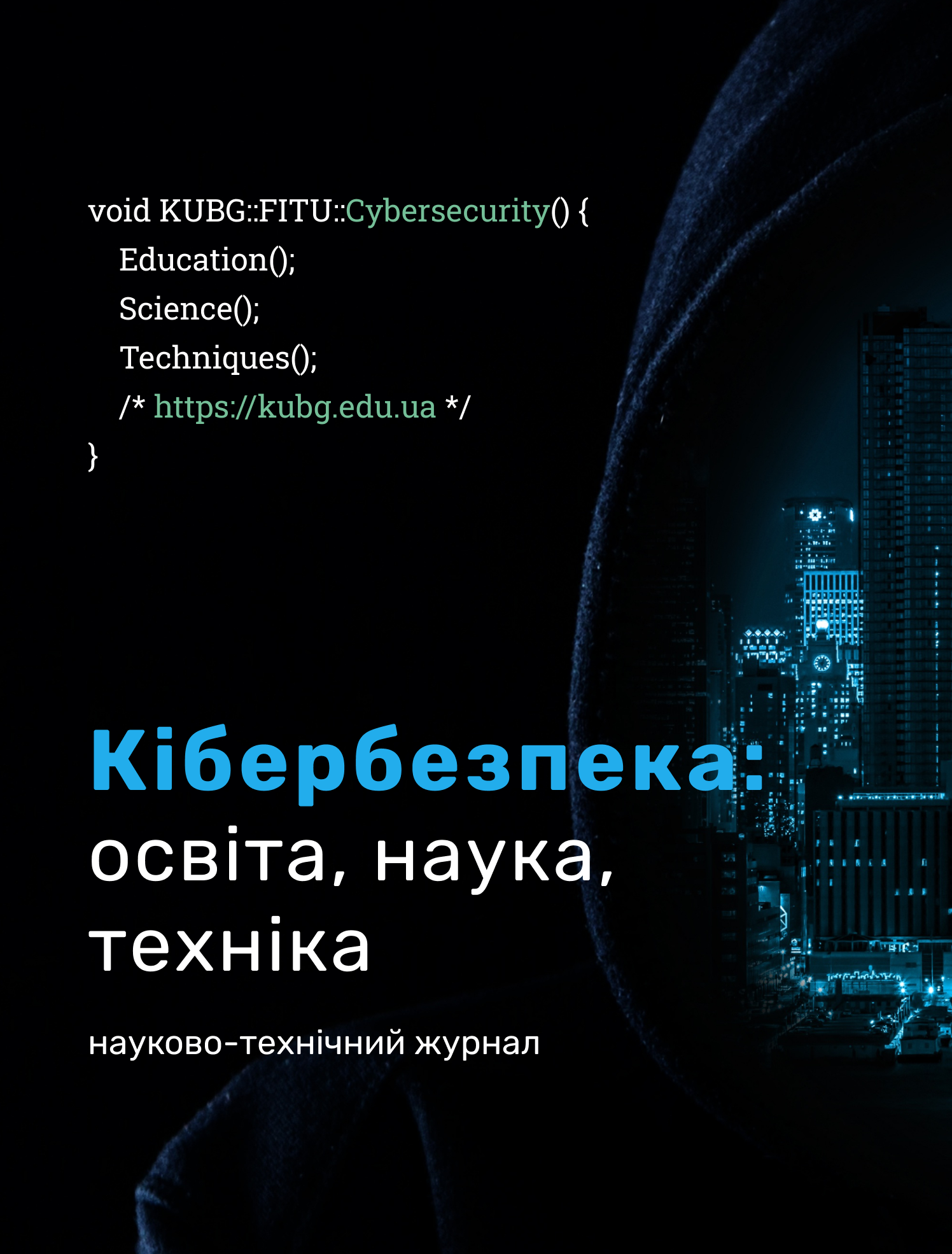INFORMATION TECHNOLOGIES AND SYSTEMS FOR ORGANIZING INTERNAL AUDIT OF THE ENTERPRISE
DOI:
https://doi.org/10.28925/2663-4023.2025.29.947Keywords:
information technology, information systems, internal audit, business analytics, automation, machine learning, artificial intelligence, hybrid, corporate governance, risk forecasting, digital economy, management decisions, business process control, continuous monitoring, data audit.Abstract
The article examines the problem of organizing internal audit (IA) of enterprises under the current economic conditions of Ukraine. It is determined that traditional audit methods, based on selective analysis and retrospective control, do not provide an adequate level of efficiency in the modern environment. Internal audit is characterized by large volumes of data. The feasibility of integrating information technologies (IT) and systems into the internal audit process is substantiated, as a tool to enhance transparency, timeliness, and analytical depth of inspections. A conceptual model of IT implementation in internal audit is developed. The model formalizes the interaction of three subsystems: data, information technology solutions, and audit procedures. The model is presented in the form of a block diagram, demonstrating the transformation of traditional audit into an optimized mechanism for supporting managerial decisions. It is proven that the quality of audit results directly depends on the quality of data and the level of automation of information processing and analysis. At the conceptual level, a description of the use of modern digital tools in IA procedures is provided, ranging from business analytics platforms (Power BI, Tableau), machine learning algorithms, to artificial intelligence systems and hybrid information systems. Based on the analysis, a table is proposed that systematizes IT by IA stages and defines their functional purpose. This made it possible to clearly identify which tools are appropriate to use for data collection, preprocessing, analysis, monitoring, forecasting, and decision-making support. The results of the study confirmed that IT integration into IA will promote the transition from retrospective inspections to continuous monitoring, reduce risks for enterprises, increase the efficiency of control, and create a foundation for strategic enterprise development. It is shown that further research should focus on developing methodological approaches to the practical implementation of the proposed model in organizations across various industries.
Downloads
References
Pererva, P., Maslak, O., Kobielieva, T., Kuchynskyi, V., & Illiashenko, S. (2021). Efficiency of information technologies in the management of intellectual property of an industrial enterprise. Bulletin of the National Technical University "Kharkiv Polytechnic Institute" (Economic Sciences), (1), 53–58.
Bilotserkivskyi, O. B. (2018). The use of intelligent information systems for the management of trade enterprises. Modern Movement of Science: Proceedings of the 2nd International Scientific and Practical Internet Conference (p. 29). Dnipro.
Lipianina-Honcharenko, K., Bodyanskiy, Y., & Sachenko, A. (2023). Intelligent information system of the city's socio-economic infrastructure. System Research and Information Technologies, (3), 108–120.
Ogiela, L., & Ogiela, M. R. (2014). Cognitive systems for intelligent business information management in cognitive economy. International Journal of Information Management, 34(6), 751–760.
Zhong, N., & Liu, J. (Eds.). (2013). Intelligent technologies for information analysis. Springer Science & Business Media.
Hostryk, O. M., Tishkov, B. O., Shkuratovska, T. B., & Shkuratovskaya, T. B. (2019). Hybrid information systems in the digital economy.
Demartini, G. (2015). Hybrid human–machine information systems: Challenges and opportunities. Computer Networks, 90, 5–13.
Abraham, A., & Köppen, M. (Eds.). (2013). Hybrid Information Systems (Vol. 14). Springer Science & Business Media.
Sakshi, T. M., Tyagi, P., & Jain, V. (2024). Emerging trends in hybrid information systems modeling in artificial intelligence. In Hybrid Information Systems: Non-Linear Optimization Strategies with Artificial Intelligence (p. 115).
Boyd, D. (2022, April). Hybrid information systems: Who is in control? Proceedings, 81(1), 109. MDPI.
Bhardwaj, R., Dutta, P. K., Raj, P., Kumar, A., Saini, K., Briones, A. G., & Kaabar, M. K. (Eds.). (2024). Hybrid Information Systems: Non-Linear Optimization Strategies with Artificial Intelligence. Walter de Gruyter GmbH & Co KG.
Huang, Y., Li, T., Luo, C., Fujita, H., Horng, S. J., & Wang, B. (2020). Dynamic maintenance of rough approximations in multi-source hybrid information systems. Information Sciences, 530, 108–127.
Kudrenko, N. V., & Demianchuk, S. Y. (2019). Information systems and technologies in the audit. Formation of Market Relations in Ukraine, 5(216), 32–38.
Qatawneh, A. M. (2024). The role of artificial intelligence in auditing and fraud detection in accounting information systems: Moderating role of natural language processing. International Journal of Organizational Analysis.
Dyachek, S. M., Svirko, S. V., & Yaremchuk, I. M. (2020). Strategic audit as a type of subject activity of the Accounting Chamber of Ukraine. Problems of Theory and Methodology of Accounting, Control and Analysis, 2(46), 9–17.
Polishchuk, V. V. (2014). Directions for improving the system of state financial control: Implementation of strategic audit. Public Administration: Theory and Practice, (1), 145–149.
Maksimova, V. F. (2012). Implementation of enterprise strategy in the system of control and audit. Bulletin of Lviv Commercial Academy. Economic Series, (39), 89–93.
Kuzyk, O. V. (2014). Strategic management of marketing communications in modern enterprises. Strategy of Economic Development of Ukraine, (34), 130–135.
Kamenska, T. O. (2010). Efficiency of activity and quality of internal audit. Bulletin of Chernivtsi Trade and Economic Institute. Economic Sciences, III(39), 301–307.
Abramov, V., Astafieva, M., Boiko, M., Bodnenko, D., Bushma, A., Vember, V., Hlushak, O., Zhyltsov, O., Ilich, L., Kobets, N., Kovaliuk, T., Kuchakovska, H., Lytvyn, O., Lytvyn, P., Mashkina, I., Morze, N., Nosenko, T., Proshkin, V., Radchenko, S., … Yaskevych, V. (2021). Theoretical and practical aspects of the use of mathematical methods and information technology in education and science. https://doi.org/10.28925/9720213284km
Published
How to Cite
Issue
Section
License
Copyright (c) 2025 Альона Десятко, Володимир Гамалій, Роман Ширшов

This work is licensed under a Creative Commons Attribution-NonCommercial-ShareAlike 4.0 International License.




